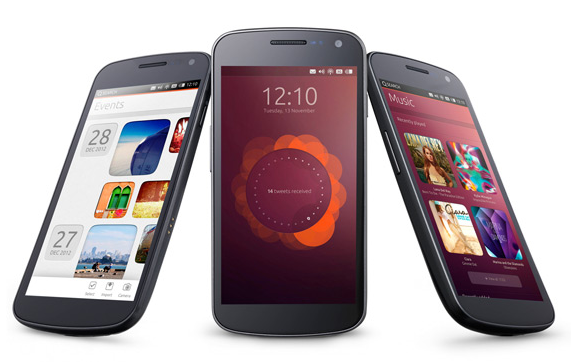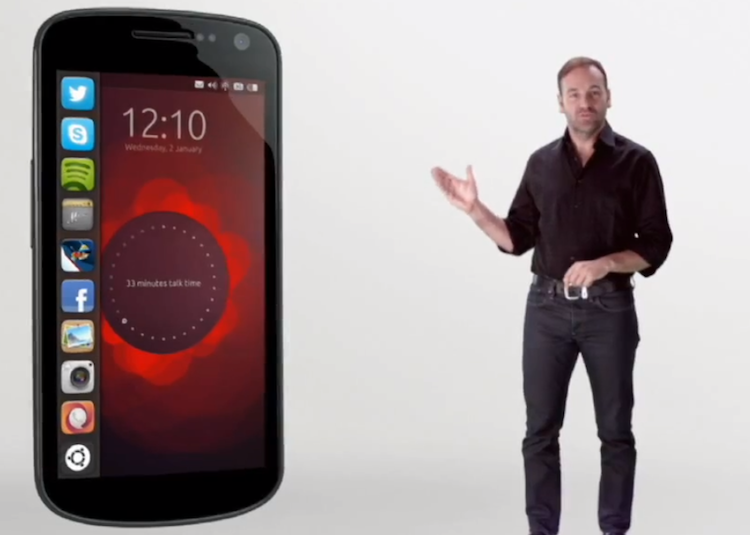
When I was 18, my Windows desktop crashed for the last time. I wiped the hard drive, installed Ubuntu and never looked back. I did the same thing with the first laptop I purchased after a year of suffering Windows Vista.
Ever since the first time I installed Ubuntu, I have been a life-long Linux and open source fan. This was originally what made me pick up Android. Open source, hardware-agnostic operating systems, in my experience, have been fantastic to work with.
And on the heels of the Ubuntu Phone OS announcement, I am swooning, just like I did when Canonical, the creators of Ubuntu, announced Ubuntu for Android in February of 2012.
Honestly, I'm still dying to get my hands on Ubuntu for Android. With Ubuntu for Android, the user can simply connect an external display and peripherals (such as a keyboard and mouse) to turn their phone into a full-fledged Ubuntu desktop. Disconnect the peripherals and external display and the device is nothing more than your typical smartphone running Android. Thanks to a shared kernel and file system, all the Android applications are accessible through Ubuntu.
The premise of using a single device for all personal computing is novel and amazing.
But for roughly two years now, mobile operating systems and their full-fledged desktop counterparts have been slowly converging. Elements of iOS have begun to appear in OS X while OS X features are starting to appear in iOS. Google has started to bridge the gap between Android and Chrome OS, giving Chrome a desktop and making Chrome the default browser in Android. And if you can't see the similarities between Windows Phone 8 and Windows 8, there might be something wrong with your vision.
Ubuntu Phone OS is this very same concept applied to Ubuntu 12.10. Canonical took the Unity interface of Ubuntu, shrunk it to be smartphone-sized and implemented an intuitive gesture navigation system. A swipe from the left edge to center opens a quick access drawer for your favorite apps. A swipe from the opposite edge takes you back to the previous application. Swiping down from different points from the top of the display opens either a global search function or various settings and status menus. And swiping up from the bottom reveals an application-relative settings menu.

At its core, it looks very similar to the Ubuntu desktop version – it's gorgeous and oddly reminiscent of webOS with its smooth, rounded corners. And despite some lag, which I imagine is due to a lack of optimization, also likely a lack of hardware acceleration, it looks wonderful – like something I want to get my hands on immediately.
I will make it a point to stop by Canonical's booth at CES next week.
But as much as I want Ubuntu Phone OS and Ubuntu for Android to take off an succeed, either together or separately, Canonical has an enormous mountain to climb in the mobile industry. Several colleagues have voiced their opinions on Ubuntu Phone OS since its announcement, and PC Mag's Sascha Segan put it perfectly in his piece titled Ubuntu's Phone OS Is Nothing Without Hardware.
Sure, Canonical has several partnerships and is working with many hardware manufacturers to ship Linux machines worldwide. But mobile manufacturers are far less likely to test new waters. We watched Palm's webOS tank once, and again under HP's control. MeeGo effectively died before it ever got off the ground. Samsung's Project Tizen and Jolla's Sailfish OS will both struggle with adoption, too, just as BlackBerry 10 would struggle to find hardware partnerships if Research In Motion ever decided to license the software.
And as Segan explains, getting hardware manufacturers on board is only half the battle. Says Segan:
"It's not just enough to have some manufacturers give you a good press release quote, either. For your mobile OS to succeed, it needs to become the primary choice of major manufacturers and carriers.
This is one reason Windows Phone 8 is struggling. Windows Phone's major market advantage is Nokia's enthusiasm. Yes, Samsung and HTC are on board, but HTC's attention is split between Windows Phone and Android, and for Samsung, Windows Phone seems to look like an afterthought."
I don't mean to be a naysayer. I'm not saying Ubuntu Phone OS cannot succeed. By all means, it can – just as Project Tizen or Sailfish OS can. But the road to success in the mobile OS industry is as steep as any. Ubuntu Phone isn't expected to come pre-installed on a phone before 2014. By then, the giants – iOS and Android – will be even larger with more in-depth and seamless ecosystems, BlackBerry may have found its way back into the limelight and Windows Phone 8 may have found its feet.
These extensive development periods are expanding the lead existing platforms have and slicing away at the odds of success.
If I had my way, Ubuntu for Android would already be on HTC and Samsung devices, fully integrated with Sense UI and TouchWiz Nature UX. And all Nexus devices would come with Ubuntu for Android. It's a brilliant idea. And, hopefully, we will see some start to arrive this year.
But I highly doubt Ubuntu for Android or Ubuntu Phone OS will immediately grab hold and sweep the market. The rise to fame for any mobile OS at this point will be a painfully slow one.
What do you think of Ubuntu Phone OS, ladies and gents? Is it something you could see yourself using over Android, iOS or Windows Phone? Or is it destined for doom? Personally, I want it and I want it now. Luckily, Canonical says it will be available for download in a few weeks. That said, I'm not holding my breath.